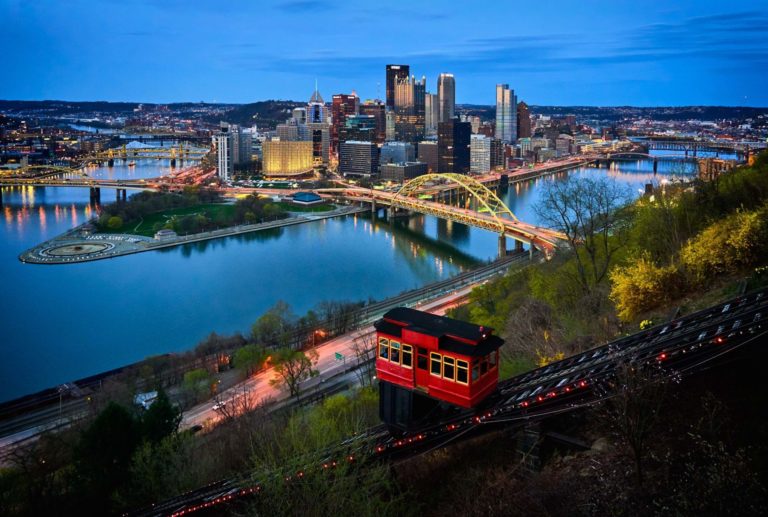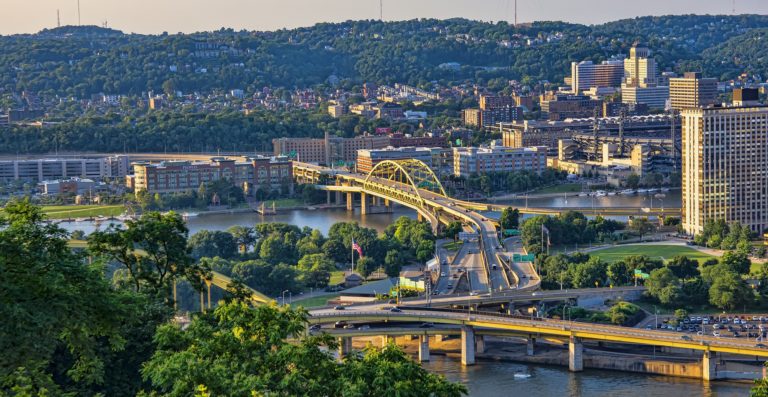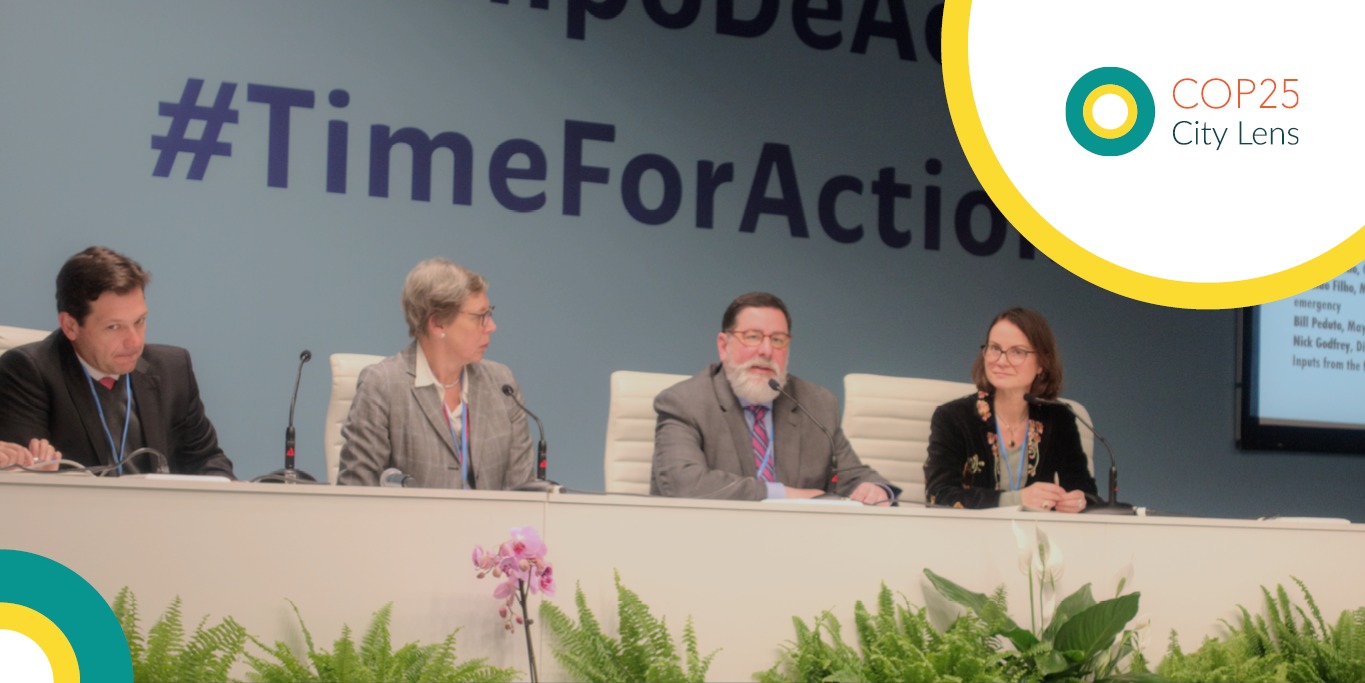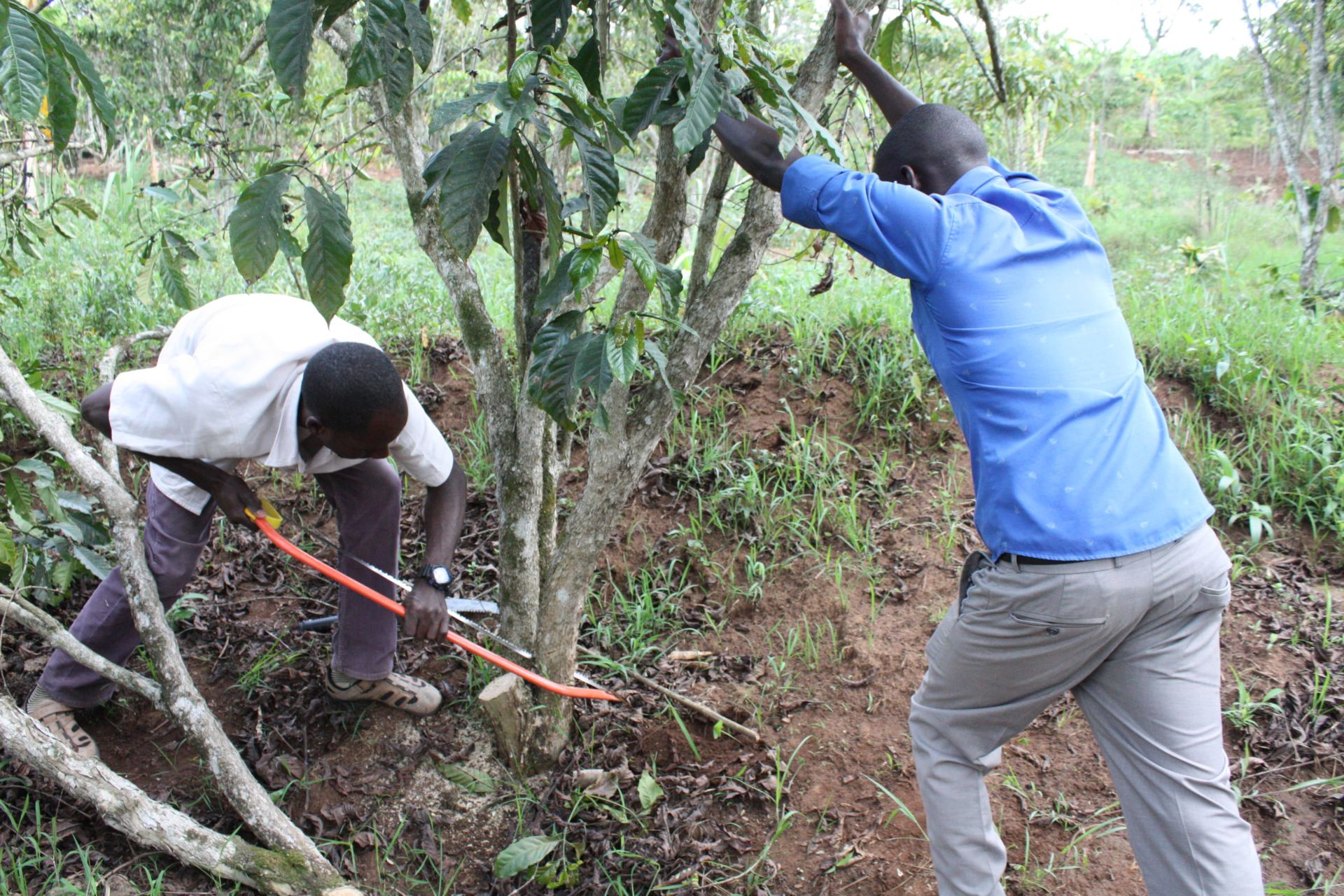This article, first published on the ICLEI blog and featuring the Mayor of Pittsburgh, is part of our “COP25” Editorial Series, done in partnership with ICLEI — Local Governments for Sustainability.
Having just recently committed to the UN’s SDGs — only the second U.S. city do so — City of Pittsburgh Mayor William Peduto came to COP25 in order to raise a voice for cities who are committed to the goals of the Paris Agreement, and exchange knowledge and best practices with fellow mayors. Including during yesterday’s Advancing Climate Change Goals Through Multi-Level Governance and Green Cities session.
Pittsburgh has become the poster child for how to transition from highly impacted industrial town to a healthy and vibrant community. A city that has gone from having air quality and smog so bad that they had to leave the streetlights on 24 hours a day, to an area that has created more cleantech and renewable energy jobs than jobs in oil, gas and coal industry combined.

This special narrative has brought Pittsburgh into the fold of the Urban Transitions Alliance, an initiative led by ICLEI and supported by the Stiftung Mercator, which presents an opportunity for industrial legacy cities across the world to demonstrate their commitment to sustainable urban development.
Under Mayor Peduto’s guidance, the city has embraced the lofty goals of reducing energy and water consumption by 50% by 2030. Pittsburgh is pursuing a long-term commitment of having a 100%, locally sourced, clean energy supply. “That’s our goal, but we know it’s going to take time,” he says.
Right now we have one cracker plant that’s being completed that will negate everything we are doing for our 2030 plan and our low carbon footprint. It’s the equivalent of putting 450,000 more cars on the road.
— Mayor of Pittsburgh William Peduto
Despite Pittsburgh’s serious commitment to sustainability and creating jobs tied to cleantech and energy efficiency, the city’s future is threatened by shale gas development, with one project already approved and several others on the horizon. Putting things into perspective, Mayor Peduto says, “Right now we have one cracker plant that’s being completed that will negate everything we are doing for our 2030 plan and our low carbon footprint. It’s the equivalent of putting 450,000 more cars on the road.”
As a sign of where things could go if these projects remain unchallenged, a just-released Carnegie Mellon University study says past fracking, cracking and drilling activity in the Appalachian Basin in and around Pittsburgh contributed to up to 4,600 premature deaths between 2004 and 2016, with an estimated overall economic toll of $23 billion USD.
With Pittsburgh’s air and water quality under renewed threat, Mayor Peduto says he values the city’s knowledge exchange with other Urban Transition Alliance cities now, more than ever. “By having this organization with cities from around the world… former industrial areas that are looking again to be stripped of their natural resources (due to threats similar to what Pittsburgh faces), it helps me to better understand and better deal with what’s happening in my own community.”
Examples of model cities within the Urban Transitions Alliance include Essen, Germany, a former coal mining town that has created numerous cleantech jobs. Another is the coal mining town of Katowice, site of COP24, where the city is seeking to transition to a greener economy tied to cleaner, more renewable energy.
We’re not trying to change the skills and crafts that people have, but rather to redeploy these workers for the new economy.
— Mayor of Pittsburgh William Peduto
The Pittsburgh that Mayor Peduto envisions is equitable. It’s one where legacy workers have a place in the job force by leveraging their skills for emerging industries. “We’re not trying to change the skills and crafts that people have,” he says, but rather to redeploy these workers for the new economy. Under the auspices of what’s called the “green/blue” alliance, established in 2007 with the motto of promoting “good jobs, green jobs,” employment opportunities are being created in the city through such collaborations as sheet metal workers working with robotics engineering firms. Or another example he cites: operating engineers that once handled the maintenance of a building, that are now getting trained on sustainable building standards so they can be a part of ensuring ongoing sustainability in buildings.
Mayor Peduto’s goal is a truly inclusive approach. “Listen to the people, work with them, and, as they value clean air and green spaces, put money behind it.” Pittsburgh is one of just six U.S. cities to have a Chief Equity Officer that helps to mainstream equity in all departments. A new priority for his administration will be to address the interlinkages between racial and gender inequality.
Related Articles: Female Mayor ‘Warriors’ of the Amazon Inspire COP25 Delegates With Stories of Resilience | Turku’s Advice on Circularity: Imagine the Possibilities, Then Get Started
But, he admits, there’s much more to be done if the city is going to live up to its goal of leaving no one behind. “If you go thirty miles outside of the city, there are still areas suffering from recession and depression.”
Another challenge Pittsburgh faces with the future possibility of widespread fracking and cracking is the impact this will have on the city’s ability to attract new talent. Pittsburgh’s cleantech industry is currently ranked 11th in the U.S. with more than 86,000 jobs to date, “but how do you attract people from around the world when you may not be able to provide them with clean air and water?”
Even with the prospect of air and water quality being threatened, Pittsburgh remains undaunted, continuing to pursue new goals tied to promoting a better quality of living. Building on its commitment to cut energy and water use in half by 2030, within the same timeframe, the city is aggressively pushing for more space dedicated to walking, biking and enjoying nature, including ensuring every resident is within a 10-minute walk of green space.

For Pittsburgh to stay on this more sustainable course, Mayor Peduto says, on the one hand, there must be a proper assessment of all the negative implications of allowing the shale gas industry to move forward unchecked, before it’s too late. On the other, he envisions a need — not just in Pittsburgh — but across the country to implement something like a “new Marshal Plan” designed to transform the US economy so that renewable energy needs, such as windmills, electric buses and solar arrays can be completely manufactured in America.
With the right planning and knowledge exchange, Pittsburgh and other post-industrial members of the Urban Transitions Alliance have the opportunity, he says, “to be a model for the rest of the world. To be able to say yes… it’s possible to have a better future. And if a post-industrial city can do it, any city can.”










